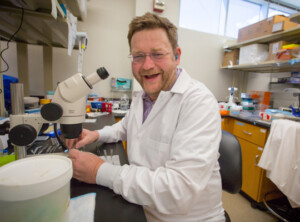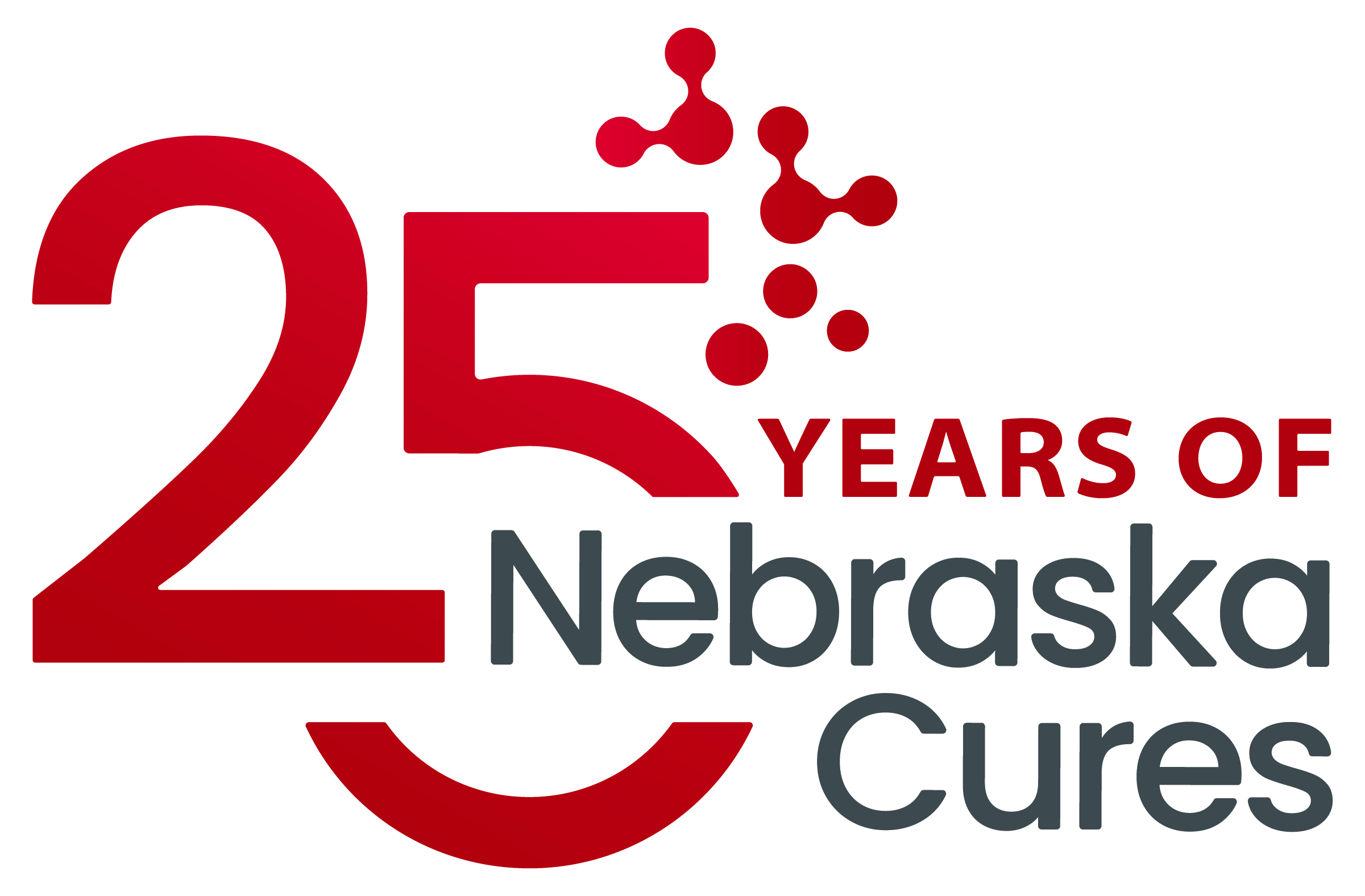
Peter Steyger, PhD, was recruited to Creighton in 2019, after 22 years at Oregon Health & Science University
in Portland, Oregon. He received an initial investment package that included $765,645 in tobacco settlement dollars to study hearing loss and serve as a professor of biomedical sciences in the School of Medicine.
He also is the inaugural director of the Bellucci Translational Hearing Center that is partially funded by
a National Institutes of Health Center of Biomedical Research Excellence award that he wrote, totaling $11.7 million, the largest NIH grant received at Creighton. This award supported the recruitment of six to 10 faculty and staff, with additional support for research technicians and postdoctoral fellows. Dr. Steyger’s research portfolio as principal investigator is now valued at $17.3 million; his impact is greater when considering funding he has secured as a co-PI and consultant. This growth in research dollars, programs and capacity was made possible by tobacco settlement funds.
The Bellucci Center operates on a unique collaborative model, bringing together top faculty and undergraduate, graduate, doctoral and post-doctoral trainees from different disciplines and institutions alongside cutting- edge facilities. Its mission is twofold: to address the complex challenge of preserving or restoring hearing and to train the next generation of hearing researchers. Projects in the Bellucci Translational Hearing Center
focus on drug development and research to regenerate the sensory cochlear hair cells that, when lost, lead to hearing loss. The center’s partnership with the Boys
Town National Research Center and the University of Nebraska Medical Center boosts the speed and reach of the Center’s research significantly by focusing on gene therapy, central auditory pathway disease analysis and clinical applications.
Dr. Steyger’s connection to his research is deeply personal. At just 14 months old, he survived bacterial meningitis thanks to aminoglycoside antibiotics – but
at the cost of his hearing. Today, his work focuses on developing interventions that enable clinicians to use these life-saving antibiotics – which are still prescribed to 100,000 people annually – without the risk of hearing loss and deafness.
In addition to leading the Bellucci Center, he serves
as the principal investigator on an NIH R25 training grant to enhance graduate student training in auditory and vestibular neurosciences, particular for those who have hearing loss to engage in research closely tied
to their own experiences. At front of his mind in all
his research, Dr. Steyger says, is the real-world impact hearing loss has on people’s lives, the untold amounts of energy they have to expend every day to participate in the broader world. This reality informs every datum collected and discovery made by his work.
